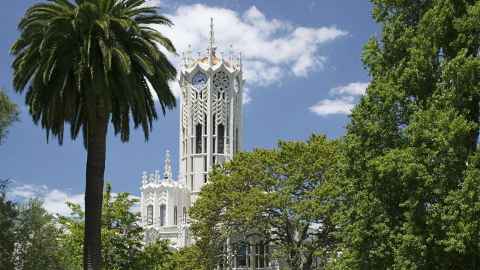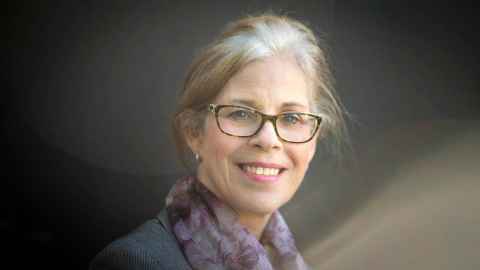University partners with QS to support fair access to education internationally
13 April 2021
Educators and data scientists will discuss the best opportunities for building a more equitable education system to improve access for under-represented groups at a summit hosted by the University of Auckland, in partnership with QS (Quacquarelli Symonds).

The EduData Summit (EDS), the world’s premium forum for data-driven educators, runs from 8-11 June and aims to quantify the extent to which educators and students experience barriers in improving education access.
It will consider how educators can use data to understand the impact of new evidence-based educational policies and work towards goals for improved teaching and learning outcomes, specifically for under-represented groups.
University of Auckland Vice-Chancellor Professor Dawn Freshwater says that UN research had determined that remote learning remains out of reach for at least 500 million students.
“The University of Auckland is a member of the United Nations Academic Impact, an initiative to encourage tertiary institutions to contribute to realising the United Nations Sustainable Development Goals,” she says.
“In 2020 we were appointed as the official hub for SDG 4, Quality Education reflecting our long-standing commitment to inclusive and equitable quality education and lifelong learning opportunities for all. We are honoured to lead this hub for 1300 institutions across 130 countries.”
The conference will provide a platform for strategists, data scientists, CIOs and other ‘dataheads’ to discuss and share best practices at the intersection of big data, predictive analytics, learning analytics, and education.
This year’s theme ‘Access Education: Building an inclusive and sustainable edudata pipeline’ will focus on how data can improve knowledge, skills, and access throughout the education ecosystem, from institutions, to education platforms, and students.

According to QS Senior Vice President, Ben Sowter, QS survey data of academics, students, and employers, revealed barriers in delivering education included such things as poor infrastructure leading to slow internet speeds or limited numbers of devices within a household.
“The past year showcased the power of online and digital education in reaching new and underrepresented groups of students,” he says.
“While a period of exciting potential, 2020 also exacerbated underlying issues around achieving SDG 4, EDS 2021 will use data from across the education sector to better understand those limitations and how best to overcome them.
“QS partners have expressed a wide range of barriers and opportunities within online and digital education, as well as traditional in-person tuition, including limitations to students’ learning skills online.
"Many have said the assumption young people who have grown up with social media will automatically be able to translate those skills to a learning environment has proven inaccurate," he says.
The conference will provide a platform for strategists, data scientists, CIOs and other ‘dataheads’ to discuss and share best practices at the intersection of big data, predictive analytics, learning analytics, and education.
Professor Freshwater echoes the notion that as a result of the Covid pandemic, 2020 was the year of digital learning.
“However, while it showcased a new era for education, it also highlighted and exacerbated the digital divide and technology inequalities on both ends of the EduData pipeline.
“Policy needs to be informed by credible and comprehensive data to ensure that decisions made are accurately planned, monitored, and evaluated to ensure attainable goals are set and achieved when considering equitable access and improved learning outcomes.”

Brett Berquist, University of Auckland Director International, says that while the border and campus closures during the pandemic had caused challenges, the University had responded with initiatives to make remote learning an option for many students in response to the pandemic.
These included dispatching hundreds of laptops and WiFi hotspots to domestic students without the capacity at their homes, increasing VPN bandwidth overseas, providing ‘study buddies’ to help offshore students, and establishing learning centres overseas.
Professor Freshwater says that the use of data and data analysis is increasingly important in making decisions about the key challenges that face the tertiary/university sector.
“These range from providing access to knowledge for educators, academics and researchers, to understanding the ways people teach and learn, to addressing the challenges for groups who are disadvantaged or under-represented in the university sector."
About EduData 2021
The EduData 2021 conference will open with the QS Rankings Summit and live launch of the QS World Rankings. The summit will provide comprehensive insights into the methodology used to create the rankings and allow participants to learn from industry experts on how to utilise the QS methodologies.
The University of Auckland is Aotearoa New Zealand's leading university in the QS World University Rankings 2020. Placed =81st in the world, it is the only New Zealand university in the top 100.
More information about the SDG 4 Goal, Quality Education and the United Nations Academic Impact SDG 4 Hub.
Media contact
Julianne Evans | Media adviser
M: 027 562 5868
E: julianne.evans@auckland.ac.nz